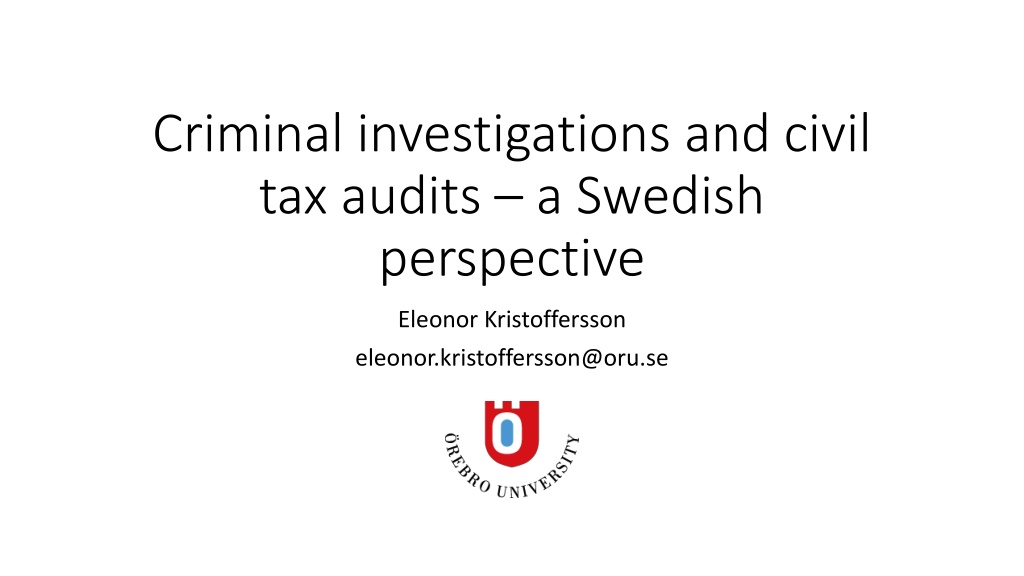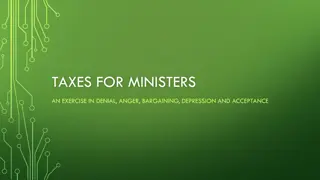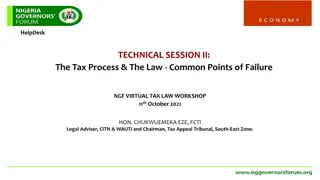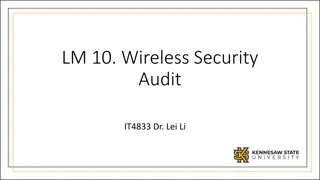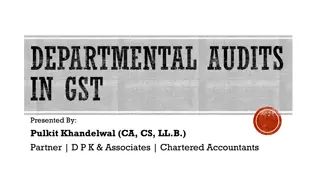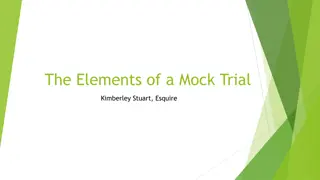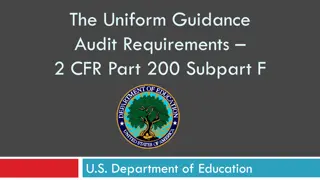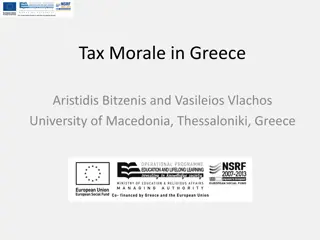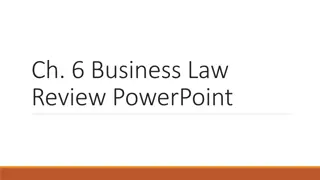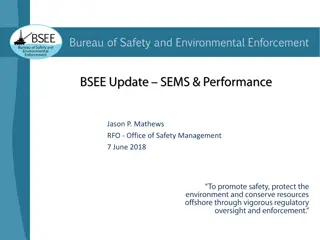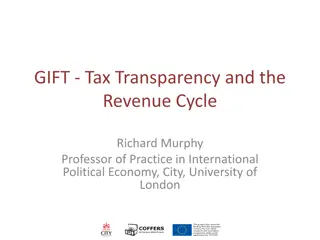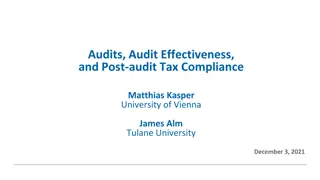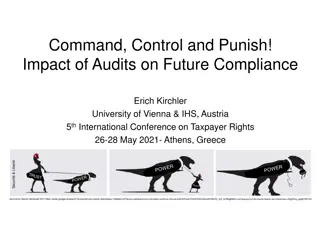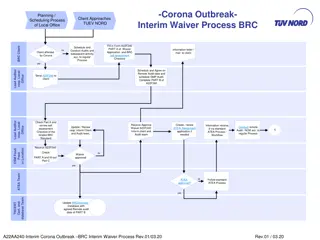Understanding the Interaction Between Criminal Investigations and Civil Tax Audits in Sweden
The relationship between criminal investigations and civil tax audits in Sweden is explored, highlighting how tax audits and criminal proceedings run concurrently. The mens rea requirement for criminal sanctions and tax surcharge, as well as the integration between criminal sanctions and tax surcharge, are discussed. Case studies illustrate severe tax offenses where no tax was owed. Learn how tax audits and criminal proceedings align and the implications for taxpayers.
Download Presentation

Please find below an Image/Link to download the presentation.
The content on the website is provided AS IS for your information and personal use only. It may not be sold, licensed, or shared on other websites without obtaining consent from the author. Download presentation by click this link. If you encounter any issues during the download, it is possible that the publisher has removed the file from their server.
E N D
Presentation Transcript
Criminal investigations and civil tax audits a Swedish perspective Eleonor Kristoffersson eleonor.kristoffersson@oru.se Logotype
The relation between criminal investigation and civil tax audits Tax audit and criminal proceedings run concurrently Mens rea requirement for criminal sanctions and tax surcharge Integration between criminal sanctions and tax surcharge Case study severe tax tax offence where no tax was owed, NJA 2016 s. 891
Tax audit and criminal proceedings run concurrently If, following a tax audit, the taxpayer is considered to have provided false information, a special charge (tax surcharge) will be imposed, up to 40 % of the withheld tax The taxpayer may also be charged with tax offence The two proceedings run parallel tax case in administrative courts, criminal case in ordinary courts If tax surcharge and a penalty under criminal law are to be imposed, the ordinary courts deal also with the tax surcharge
Tax audit and criminal proceedings run concurrently Tax surcharge If, during the procedure, the taxable person has provided false information, other than orally, for the purposes of the tax assessment, a special charge (tax surcharge) shall be levied. The same shall apply if the taxable person has provided such information in legal proceedings relating to taxation and the information has not been accepted following a substantive examination.
Tax audit and criminal proceedings run concurrently Tax offence Any person who intentionally provides false information to the authorities, by other means than orally, or fails to submit to the authorities a tax return, statement of earnings or any other prescribed information and thereby creates the risk that tax will be withheld from the public or will be wrongly credited or repaid to him or a third party shall be sentenced to a maximum of two years imprisonment for tax offences. If an offence within the meaning of Paragraph 2 is to be regarded as serious, the sentence for such a tax offence shall be a minimum of six months imprisonment and a maximum of six years.
Mens rea requirement for criminal sanctions and tax surcharge Tax offence: Dolus Negligent tax return: Severe culpa Tax surcharge: Grounds for exemption Mistake of law does not offer a defense of a crime
Integration between criminal sanctions and tax surcharge May be imposed simultaneously In the same procedure before the ordinary courts The court must when sentencing, in addition to the penalty value of the crime, take into account if a penalty imposed according to the penalty value of the crime would appear disproportionately severe in the light of other legal sanctions resulting from the crime (Chap. 29 Sec. 5 of the procedural code)
Case study - NJA 2016 s. 891 No tax withheld from the public according to the administrative court s decision, but still a tax offence
Case study - NJA 2016 s. 891 The question referred to the Supreme Court was whether the defendant could be found guilty of a serious tax offence regarding certain transactions. Following a tax audit, the administrative court of appeal, which in this case was the last instance, had found that the person subject to the criminal proceedings had not submitted any false information. Thus, there was no reason to change the initial tax decision, and put simply, it was not possible to prove that the taxpayer had done anything wrong. In the criminal proceedings, however, the Supreme Court evaluated the evidence differently and found both that tax was owed and that the defendant was guilty of a severe tax offence.
Case study - NJA 2016 s. 891 How could this happen?
Case study - NJA 2016 s. 891 The reasoning by the Supreme Court Tax offence is a risk crime: The tax does not actually have to be withheld, or wrongly credited or repaid; the existence of a risk is sufficient The ordinary courts in general do not have to follow an administrative court s decision in a tax matter
Case study - NJA 2016 s. 891 The risk issue: This examination must be made on the basis of the circumstances at the time when the documents were received by the Swedish Tax Agency. It is irrelevant that the Court of Appeal has made the assessment that there was no tax liability.
